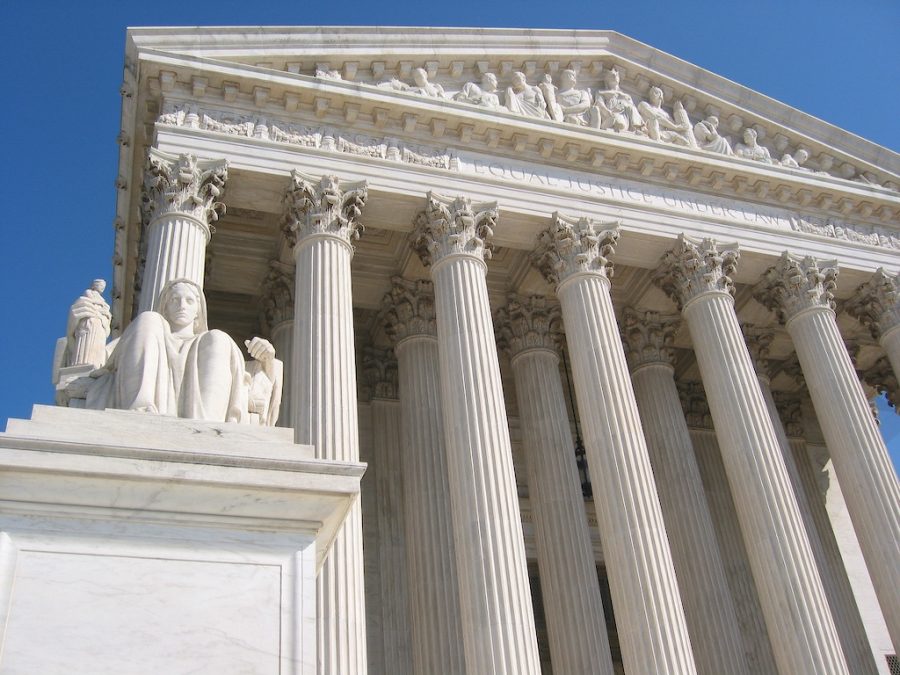Supreme Court to hear affirmative action lawsuits against top universities
The U.S. Supreme Court has heard many landmark cases in recent months, and their next case could impact thousands of universities nationwide, including DePaul.
he U.S. Supreme Court is set to hear two cases against Harvard and University of North Carolina in an affirmative action lawsuit on Oct. 31. These two lawsuits are brought by the anti-affirmative action group Students for Fair Admissions (SFFA). The lawsuit’s goal is to overturn the 2003 Grutter v. Bollinger case, where the court ruled the consideration of race in college admission is legal.
The term “affirmative action” was coined in 1961 by former president John F. Kennedy in an attempt to protect workers against racial discrimination.
“It was designed to promote equity when it came to educational opportunities for those who had been historically disenfranchised,” said DePaul adjunct instructor Mitzi Ramos.
Affirmative action was not only created as an educational effort but as an employment effort to help minority groups access opportunities.
“History is a very important part of this conversation when we think about the impact of segregation,” said DePaul adjunct professor Christina Steed. “We can look at that in the creation of historically Black colleges and universities where those institutions had to be created because Black people couldn’t go to universities that were established.”
The University of Michigan (UM) and the University of California system stopped using affirmative action admissions 15-years-ago. 2021 data shows that only 258 students out of 6,931 at the University of California at Berkeley are Black students, according to The New York Times. The same study shows UM’s Black enrollment as 4% of the student body.
“The flagship campuses in California and Michigan have been unsuccessful in enrolling members of marginalized racial groups,” said Justin Driver, a Yale law school professor.
SFFA is using what is happening at these highly competitive universities for their lawsuit. They stated in a brief posted last month that, “Overruling it [Grutter] would improve diversity on their campuses (because they could better compete with universities who currently use race).”
In an article posted on the organization’s website, they argue that Asian Americans are being hurt the most by affirmative action.
“But the legal argument is not that affirmative action is unnecessary. It’s that it causes schools to actively discriminate against Asian applicants. The evidence is strong,” the article said.
They include statistics from a 2009 Princeton study that lists Asian Americans having to score 140 points higher than white applicants on the SAT to have the same chance of admission to selective colleges.
Affirmative action continues to be argued in many different environments.
“We have been quick to attack and eradicate affirmative action without addressing educational inequality and the broken education pipeline that impacts students of color,” Ramos said. “It’s interesting how we attack preferential treatment when it impacts students of color and not when it favors children of donors or legacies to name a few.”
Many students at DePaul have felt this broken education pipeline and the personal effects of racial discrimination in our education system.
“Nowadays, it’s getting harder not to notice that I am the only Latina out of 11 students in my master’s program and that’s with affirmative action put in place,” said DePaul graduate student Adriana Antunez.
“Affirmative action was there as a flimsy shelf against it all, but now it is being dangled over our heads just like Roe v. Wade was,” Antunez said. “We need more people of color in positions of power to truly reflect the world that we live in rather than the narrow view we’ve been given thus far.”
Universities around the nation are continuing to push for efforts around diversity and inclusion, whether or not that be for their own image and gain.
“Universities will need to continue to be clear on their narrative and goals around diversity, equity, inclusion and belonging,” Steed said. “So their students, faculty, staff and the student population consider attending the university, so they understand and know that the institution is valuing them and their contributions.”
Justices will hear the UNC case first beginning at 10 a.m. Oct. 31. The court will hear the Harvard case later that day.
Connect with Una Cleary: @unacleary_ | focus@depauliaonline.com







